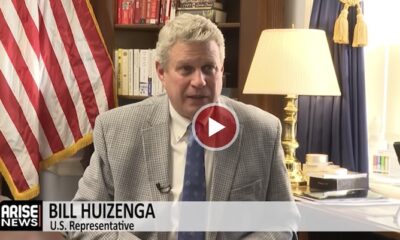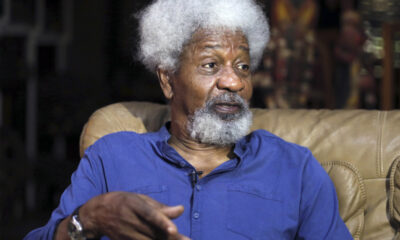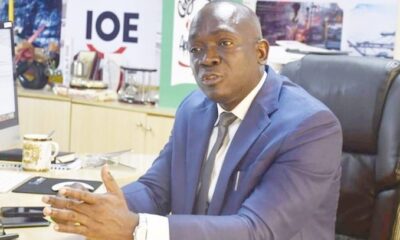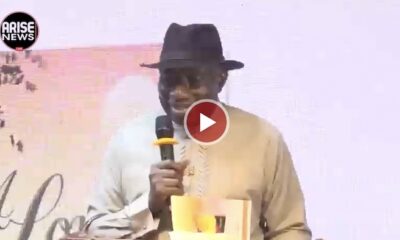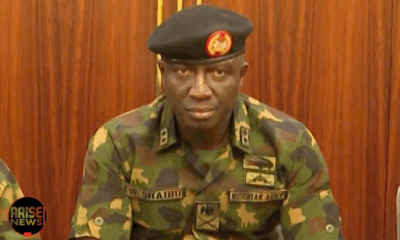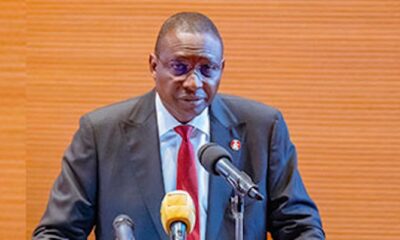Politics
Joe Keshi Critiques Nigeria’s Government on Christian Persecution Messaging
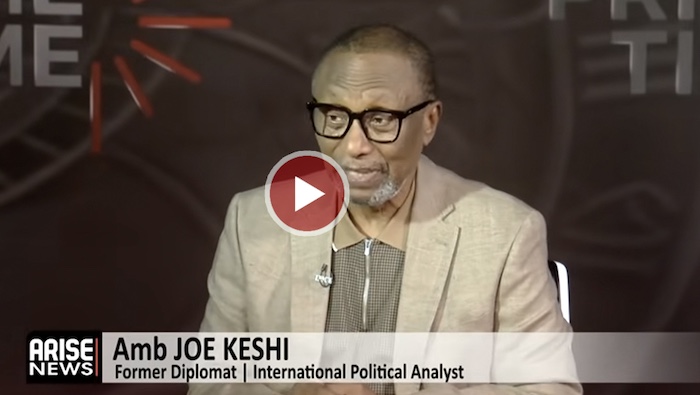
Former Nigerian diplomat and political analyst, Ambassador Joe Keshi, has criticized the federal government’s approach to the ongoing discussion surrounding Christian persecution in Nigeria. In a recent interview with ARISE News, Keshi highlighted a perceived “lack of empathy” from President Bola Tinubu’s administration, suggesting that poor communication has intensified public mistrust and tarnished Nigeria’s international image.
Keshi pointed out that the government’s messaging, particularly from various spokespersons, fails to address the concerns of the Nigerian populace. “In a crisis period like this, the first constituency the president should speak to is the Nigerian people,” he stated, emphasizing that the president has not directly addressed citizens while his spokespersons make assertions that lack accountability.
The former ambassador specifically criticized remarks made by Minister of Information Mohammed Idris and Minister of Solid Minerals Development Dele Alake. He accused Alake of undermining a government briefing with divisive comments, stating, “How could a minister say those driving the narrative of Christian killings are people who lost the 2023 elections?” Keshi argued that comments like these demonstrate a profound disconnect between officials and the realities faced by Nigerians.
Keshi also condemned presidential spokesman Daniel Bwala’s attempts to minimize reports of Christian persecution, labeling his comments as “reckless” and damaging to Nigeria’s diplomatic standing. “If Bwala is the face of Nigerian diplomacy today, then we are in a worse crisis than we think,” he remarked. He questioned the validity of Bwala’s claims that crime rates in America exceed those in Nigeria, citing a lack of reliable crime data within the country.
The former diplomat expressed concern that by suggesting both Christians and Muslims are victims of violence, government officials inadvertently acknowledge their failure to protect citizens. He stated, “Even saying that alone destroys your argument. Muslims are being killed because successive governments have failed to protect them.”
Keshi emphasized the necessity for the Nigerian government to collect and disseminate accurate data to combat conflicting narratives and rebuild international credibility. “We must speak with data,” he stressed, urging that claims of only 100 people killed cannot stand against video evidence showing a far greater toll.
Addressing the need for direct communication from President Tinubu, Keshi urged him to outline government strategies to combat insecurity and foster a “national conscience” aimed at ending the violence. “In times like this, the president must speak to the people, lay everything on the table, and say, ‘This is the situation and this is what I’m doing,’” he said, reiterating what he believes strong leadership entails.
Keshi noted that effective foreign policy begins at home, cautioning that the government cannot engage credibly with international partners, including the United States, without first addressing internal challenges. He recounted his own experience managing a similar crisis in 2009 while serving as a diplomat in Washington, where he successfully engaged with concerned US officials by providing accurate information and acknowledging the reality of the situation.
“I didn’t deny that Christians were being attacked,” he recalled. “But I made the case that it’s a complex issue and explained what the government was doing.” He criticized the current administration for not being transparent and responsive to international concerns.
Highlighting the consequences of neglecting domestic grievances, Keshi warned that Nigerians taking their issues abroad do so because they feel unheard at home. “Those who took this issue abroad did so because nobody was listening to them. Even the dead have not received justice,” he said, stressing the importance of action over inaction.
Keshi called on President Tinubu to impose strict deadlines on service chiefs to address insecurity effectively, suggesting that their continued tenure should depend on tangible results. “The president should say clearly, ‘Your continuation in this job depends on ending this crisis within six months,’” he advised.
Finally, the veteran diplomat underscored the need for unity and decisive action, rather than defensiveness or denial. “Forget excuses. Forget threats. Let’s do something dramatic between now and early next year to end the killings,” he concluded, reinforcing that foreign policy begins with leadership at home.
-

 Entertainment2 months ago
Entertainment2 months agoAnn Ming Reflects on ITV’s ‘I Fought the Law’ Drama
-

 Entertainment3 months ago
Entertainment3 months agoKate Garraway Sells £2 Million Home Amid Financial Struggles
-

 Health2 months ago
Health2 months agoKatie Price Faces New Health Concerns After Cancer Symptoms Resurface
-

 Entertainment2 months ago
Entertainment2 months agoCoronation Street’s Carl Webster Faces Trouble with New Affairs
-

 Entertainment2 months ago
Entertainment2 months agoWhere is Tinder Swindler Simon Leviev? Latest Updates Revealed
-

 Entertainment3 months ago
Entertainment3 months agoKim Cattrall Posts Cryptic Message After HBO’s Sequel Cancellation
-

 Science4 weeks ago
Science4 weeks agoBrian Cox Addresses Claims of Alien Probe in 3I/ATLAS Discovery
-

 Entertainment2 months ago
Entertainment2 months agoOlivia Attwood Opens Up About Fallout with Former Best Friend
-

 Entertainment3 months ago
Entertainment3 months agoMarkiplier Addresses AI Controversy During Livestream Response
-

 Entertainment3 months ago
Entertainment3 months agoMasterChef Faces Turmoil as Tom Kerridge Withdraws from Hosting Role
-

 Entertainment4 months ago
Entertainment4 months agoSpeculation Surrounds Home and Away as Cast Departures Mount
-

 World2 months ago
World2 months agoCole Palmer’s Mysterious Message to Kobbie Mainoo Sparks Speculation

